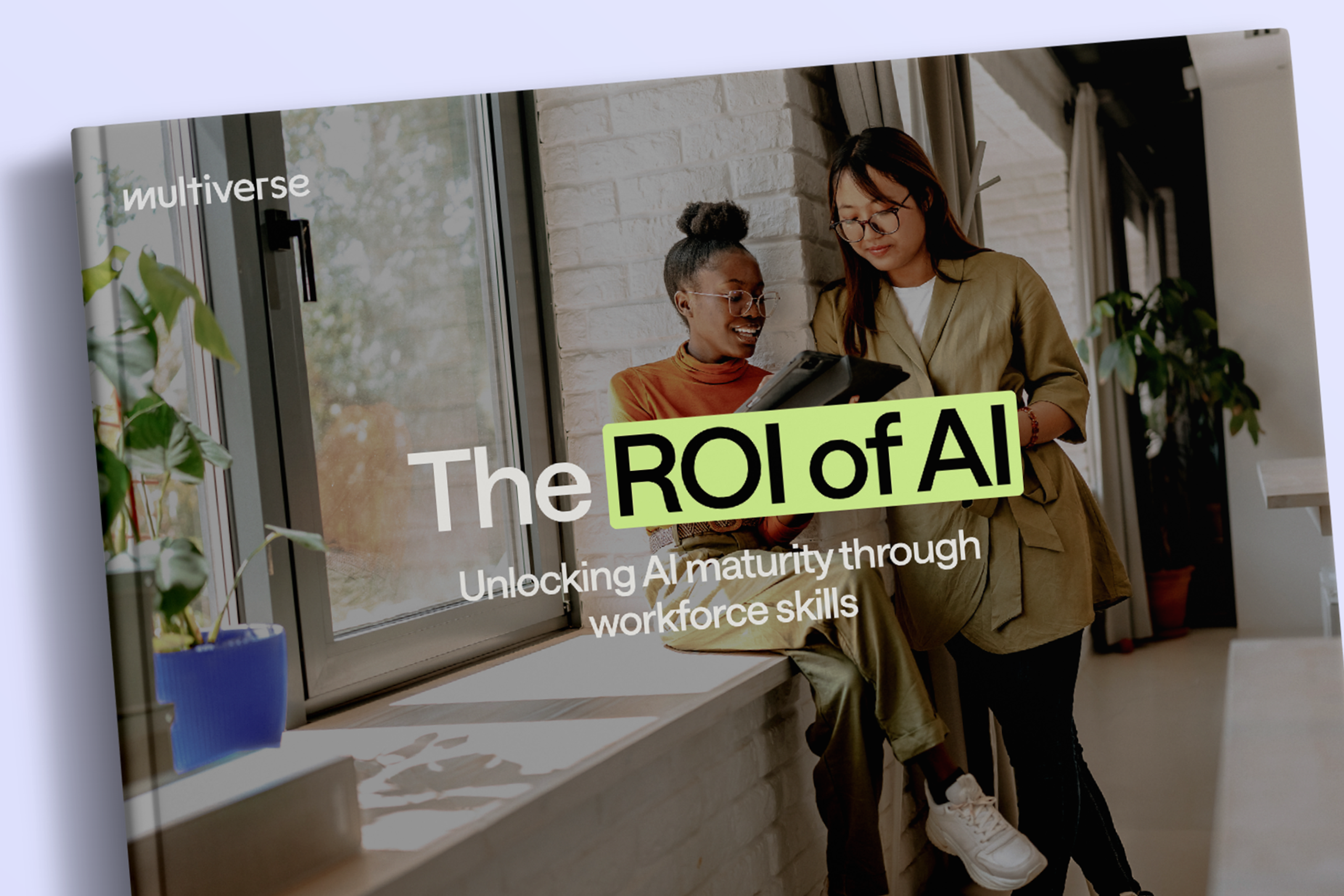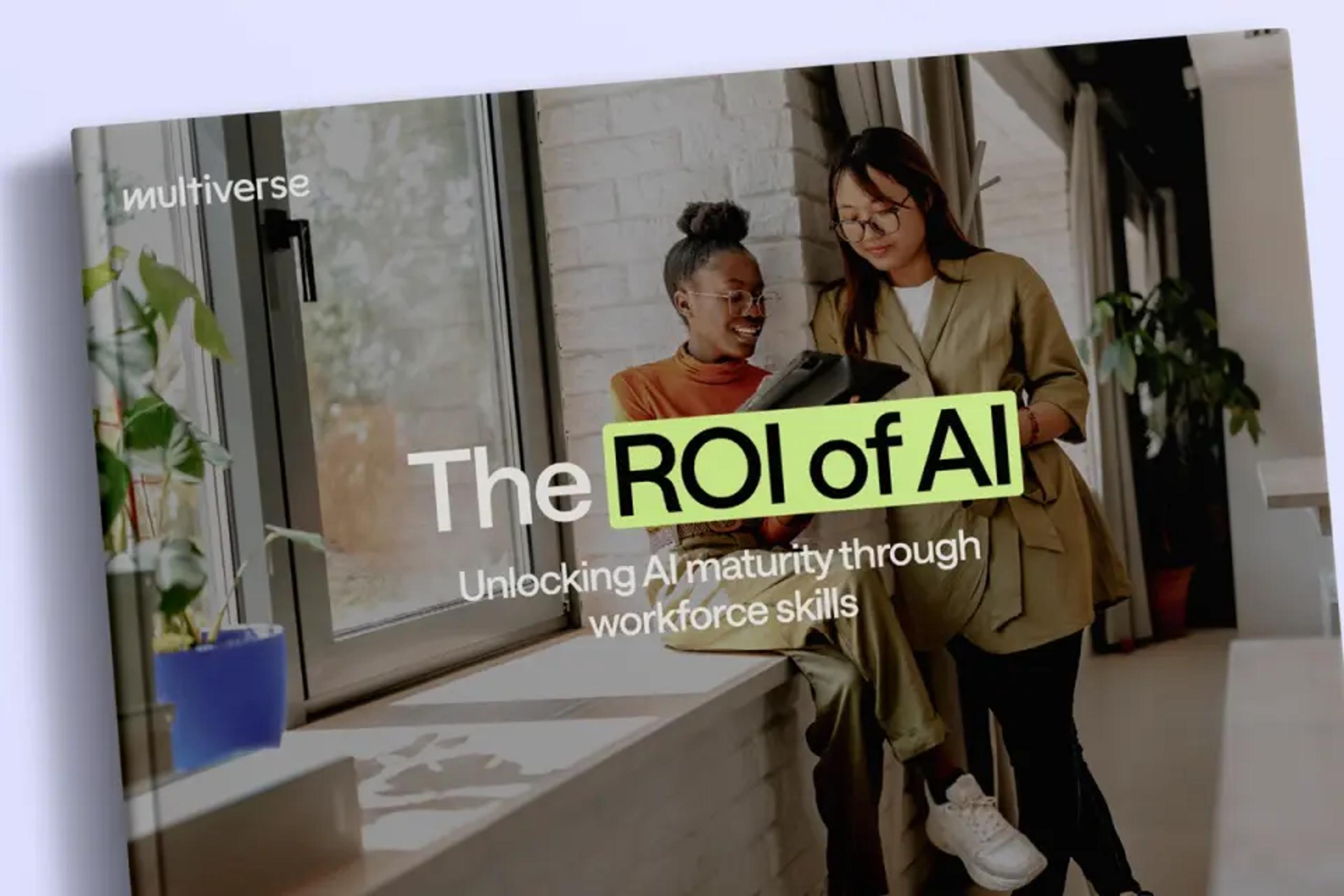The UK is aiming to become an “AI superpower” following the launch of the AI Opportunities Action Plan.
Prime Minster Keir Starmer wants to “unleash AI” - promising to drive adoption and deploy AI widely across the public sector, from reducing admin for teachers to assessment and diagnosis in the NHS.
What will this mean in practice for employers? In this article we’ll explore the AI Opportunities Action Plan and what this means for the skills agenda in the UK.
What’s included in the AI Opportunities Action plan?
The plan was commissioned by the Government and developed by tech entrepreneur Matt Clifford. It includes 50 recommendations(opens new window), with the goal of boosting economic growth and improving people's everyday lives by supercharging AI adoption.
Improving living standards and transforming public services are called out as key ambitions of the plan – which is made up of three pillars:
- Lay the foundations to enable AI: including the development of ‘AI Growth Zones’, the creation of a National Data Library (unlocking data sets to enable training of new models), as well as training, retaining and attracting talent.
- Change lives by embracing AI: pushing public sector adoption by piloting and scaling AI products and services, while encouraging the same in the private sector.
- Secure our future with homegrown AI: ensuring the UK has national champions through a new unit, UK Sovereign AI.
“In the coming years, there is barely an aspect of our society that will remain untouched by this force of change,” said Prime Minster Keir Starmer, in part of the government’s response to the recommendations(opens new window), which sets out how the government will take forward the 50 recommendations included in the plan.
In practice, it’s hoped AI will enable public sector workers to spend less time on admin and more on delivering services. The opportunity for public benefit is huge: ranging from automated pothole inspection to faster cancer diagnosis.
The Prime Minister has now tasked his cabinet to make AI adoption a top priority for their Departments.
How is the public sector embracing AI?
Learn how digital literacy is helping unlock digital transformation in public services.
The Multiverse take: AI tools are only as powerful as the humans that wield them
The focus on skills and talent in the action plan is welcome – AI adoption must start with skills.
Here’s what Euan Blair, Founder and CEO of Multiverse, said following the announcement:
“Being first to mass adoption is just as important as being first to innovation. We may have missed the first-mover advantage on LLMs and data centres, but it’s encouraging to see the UK Government recognises its other unique opportunity: to be first to implement AI at scale.
“None of the AI action plan can happen without a substantial investment in skills, since AI tools are only as powerful as the humans who wield them.”
Multiverse engages regularly with policymakers and will offer advice as the recommendations are taken forward.
What will happen next?
The plan sets out how the country can train, attract and retain the next generation of AI scientists and founders in a set of recommendations. These include:
- Accurately assessing the size of the national skills gap, including AI and digital skills, by Spring 2025
- Setting out how the UK will attract highly skilled AI workers from abroad in the Industrial Strategy, by Summer 2025
- Ensuring the lifelong skills programme is ready for AI by assessing the importance of digital and AI skills in the curriculum, by Autumn 2025
- Establishing headhunting capability to bring top AI talent to the UK, by Autumn 2025
- Increasing the diversity of the talent pool with a focus on improving gender balance, starting at school level, by Autumn 2026
- Expanding education pathways into AI, by Autumn 2026
- Launching an undergraduate and master’s AI scholarship programme, by Autumn 2026
- Expanding the Turing AI Fellowships offer, by Autumn 2026
- Increasing the number of AI graduates and teach industry-relevant skills, such as AI-related degrees in Higher Education, by Autumn 2027
What should employers do on AI skills?
Considering 51% of workers have received less than five hours of AI training – according to our ROI of AI report, there is a clear opportunity for employers to upskill their workforce on AI.
Equipping people with the skills and confidence to use AI will spur further growth - as workers start to see how the technology can reshape their day-to-day.
For leaders wanting to bring AI into their company, understanding skills gaps is the first port of call.

Assessing the ROI of AI
Understand the growth opportunity AI could create in your business.





